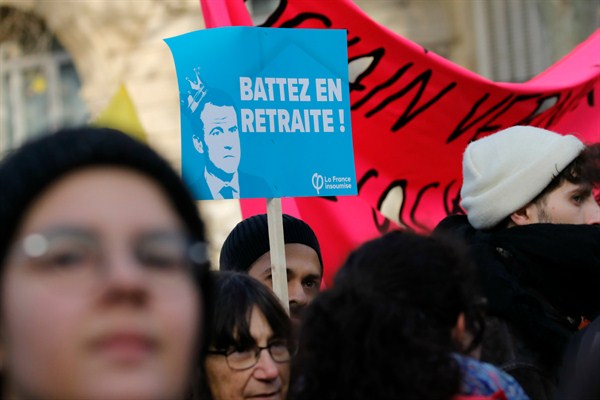The transportation strikes and labor protests that have paralyzed France for the past week are proof once again of the gap between President Emmanuel Macron’s lofty international reputation and his domestic fall from grace. Lionized abroad as a young, dynamic outsider, courageous reformer and liberal champion, Macron is decried at home for his tone-deaf arrogance, illiberal imperiousness and seeming disregard for France’s less fortunate and most vulnerable citizens.
The strikes and demonstrations are just the beginning of what promises to be a lengthy fight over Macron’s plans to reform France’s pension system. Two years ago, Macron faced down the unions to push through labor market reforms. Now, he is trying to tackle the crown jewel of France’s social safety net, which is also the third rail of French politics: the generous but unwieldy collection of over 40 job- and sector-specific pension plans that vary in everything from payouts and retirement age to years of required work activity.
For decades, fiscal conservatives have warned about the underfunded pension system’s long-term solvency. But periodic reform efforts over the past 25 years have only achieved incremental changes, often at the cost of provoking massive protests. Many in France associate the political dangers of pension reform with the spectacular failure of then-Prime Minister Alain Juppe’s attempt in 1995, when demonstrations and general strikes shut the country down for weeks, forcing Juppe to back down.

